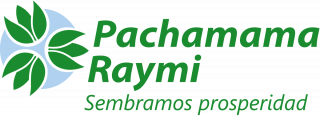In 2006 Willem van Immerzeel had 18 years of experience with adapting and implementing the Pachamama Raymi methodology to very diverse institutional, social and cultural realities in several Latin American countries.
Several "wild" ideas had formed over the years. But these could never be implemented due to difficulties encountered in project teams, but also due to legal and administrative restrictions. As Willem said, plenty of water had to be mixed with the wine ...
For example, it seemed to him that it would be possible to introduce dozens of innovations at the same time. This not only seemed possible but also necessary to be able to rapidly eradicate poverty in rural areas. So many innovations were needed, because eradicating poverty implies improving income, but also health, education, reclamation of degraded natural resources, etc., etc. Nobody believed it was even possible.
To introduce so many innovations simultaneously and in a short time, it would be important to reduce resistance to change. To do this, Willem wanted the field staff to consist of farmers only, departing from minimum academic requirements for project staff.
Willem could not implement these and other such exotic features in the context of a project that he had designed or to which he had been a consultant. He started his own project to be able to do that. No funding could be found for such an exotic project so he used funds from DEXCEL-Peru to carry out the experiment. Twelve extremely poor and remote communities were chosen in the district Challabamba, Paucartambo province (Cusco). Willem prepared the rules and regulations for the first contest including the many dozens of innovations to be implemented by families and communities. Essentially the same rules and regulations are still being used today.
Willem hired Cipriano Arando Solis, an exceptional farmer from the community of Hatun Pata (Abancay). Cipriano, almost without assistance from other staff, could generate significant progress in the twelve communities of Challabamba.
This first experience is documented in a series of wonderful videos prepared by Alpakita:
- The visit of farmers to Paccarectambo (September 2006) (streaming, download)
- Exchange in Laly (beginning of 2007) (streaming, download)
- The first awards ceremony (March 2007) (streaming, download)
- Results after 7 months (March 2007) (In English: streaming, download)
The results stunned Pieter Romein, who decided to continue financing this project including two more districts, appart from Challabamba (Caicay and Ocongate). To achieve this, he founded the "Peer Learning Association"




